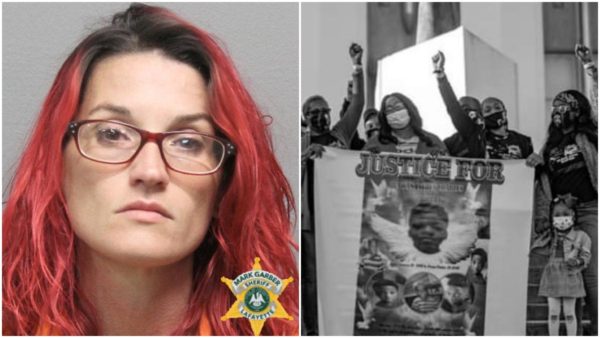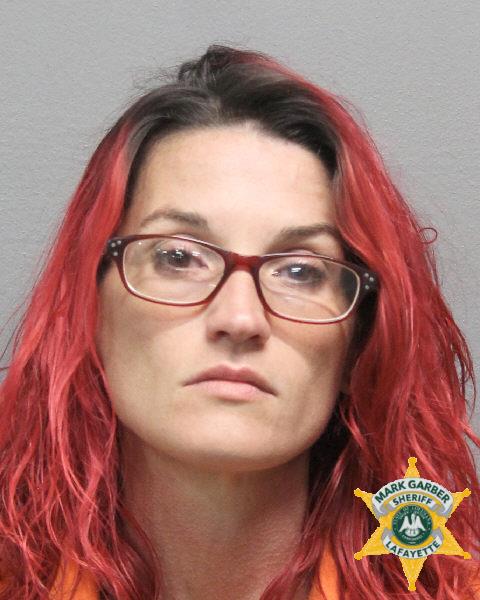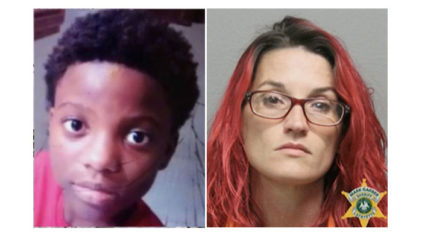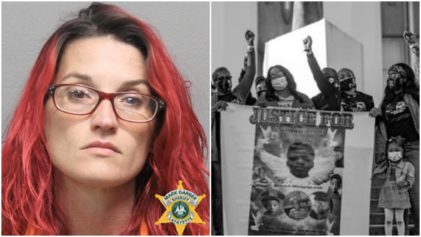Quawan Charles had traces of alcohol and marijuana in his system when he was found dead in a Louisiana sugar cane field in November, according to a toxicology report recently released by attorneys representing the Black teen’s family.
But no hallucinogens were detected in Charles’ bloodstream. It’s a revelation that may debunk theories that the 15-year-old boy was high on mushrooms when he reportedly walked away from a friend’s home just days before his body was discovered in a shallow Louisiana marsh with his face mutilated.

Janet Irvin, a white woman whose 17-year-old son was friends with Charles, was one of the last people to see the teen alive. For weeks, family members have pressured authorities to arrest the woman, arguing that she knows more about Charles’ disappearance from her trailer home than she’s reported. When questioned by private investigators, Irvin and her inner circle put forth the narrative that Charles got high on hallucinogens and wandered off on his own.
But the Charles family’s legal team insists the toxicology results refute those claims and suggest foul play factored into the teen’s death.
Related Stories
“This emphatically proves that they were lying in an attempt to cover up what happened to Quawan,” the attorneys said in a Jan. 19 statement announcing the toxicology results.
According to the report, Charles had a blood-alcohol concentration of .014 grams per 100 milliliters in his cavity blood, well below the legal threshold of intoxication for adults (0.08 g/mL). The analysis also detected the presence of 4.7 nanograms of Delta-9 THC, the main psychoactive compound in marijuana.
The Iberian Parish Sheriff’s Office has been investigating Charles’ death as a homicide for the past two months. Yet there have yet to be any arrests made and no suspects have been named.
Sheriff’s investigators are still awaiting results from the official toxicology. Samples for that test were taken in closer proximity to Charles’ death than those for the family’s toxicology, according to The Daily Iberian. Sheriff’s spokesperson Katherine Breaux confirmed that attorneys and their representatives met with detectives working the case Jan. 19. The legal team released the toxicology just minutes before that meeting was scheduled.
“An arrest will not be made until all evidence has been gathered, including the toxicology,” Breaux told the Acadiana Advocate. “We want this to be solved and turned over to the district attorney’s office just as much as the family does.”
Attorneys Ronald Haley Jr., Chase Trichell, Dedrick A. Moore and Ryan Thompson have mounted an independent shadow investigation into the mysterious circumstances surrounding Charles’ death. The legal team hired the private investigators that questioned Irvin, her family members and friends. Haley has made known his contentions that Irvin, her son, her boyfriend, two other teens and the mother of one of those teens were the last six people to see Charles alive. Haley suspects the group as a collective knows what really happened to him.
The toxicology results seemed to bolster that belief.
“This likely proves that Quawan’s death was not the result of an accident or gross negligence, but intentional,” said the statement from his law firm Haley & Associates. “Quawan’s cause of death is still drowning. If Quawan died in the sugar cane field he could not have drowned in water ‘ankle deep’ without human intervention, as drug use being a contributing factor has been minimized, if not completely ruled out. If he did not drown in that sugar cane field, then additional questions must be answered.”
Erik Flail, a certifying scientist for Pennsylvania-based NMS Labs completed the report Dec. 2. It’s not clear when the family and attorneys learned of the results. Haley could not be reached for comment.
Charles’ parents reported him missing Oct. 30 when he vanished from his father’s Baldwin, Louisiana home. He was at Irvin’s Loureauville trailer home about 25 miles away. The woman picked Charles up from his father’s house that afternoon without his parents’ knowledge or consent. Charles attended school with Irvin’s 17-year-old son in Youngsville, where he lived with his mother.
Irvin, 37, admitted to one of the private investigators that she did not report Charles was missing until Nov. 2, more than a day after she says he vanished from her custody.

Charles’ body was discovered Nov. 3 in an empty sugar cane field within walking distance from her home.
Attorneys on Dec. 22 released audio recordings of Irvin and her son being questioned by the private investigator.
In the sound clips, Irvin claimed Charles stormed out of the trailer while she was away picking up her boyfriend. She said her son, who was home at the time, told her Charles woke up and started swinging at him with his eyes closed then left the trailer, telling his friend he was going to kill himself. Irvin’s son told the private investigator he and Charles “smoked some weed” together on Oct. 30
Irvin said she, her son and boyfriend went searching for Charles, but ended their search prematurely, figuring he called someone to come pick him up. She admitted she never reached out to his parents or authorities.
“Because, you know, you never think something else,” Irvin explained in the recording. “So I just put it in my head. Yes, I should’ve called the cops. I should’ve went further.”
It wasn’t until Irvin got a phone call from someone who been contacted by Baldwin police that she said she realized Charles was still missing.
“And I’m like ‘Oh god, that boy didn’t make it home,'” she said.
Irvin still didn’t report Charles’ disappearance to the sheriff’s office until the following afternoon while on her lunch break.
The Iberia Parish coroner concluded Charles died from drowning and an independent autopsy by American Forensics, a Texas-based company hired by Charles’ family, corroborated that ruling.
KLFY-10 said the Irvins were seen packing up a U-Haul van at the home in the weeks following Charles’ death. The family’s whereabouts are not clear now. Breaux on Tuesday told the local TV station that detectives are still trying to “actively track” the individuals.
Attorneys of Charles’ family insist the toxicology results beg several new questions about his fate.
“Where did he drown at?” they speculated in the statement. “Why was he moved and dumped in the sugar cane field? And most importantly who was involved in his death and cover up?”

